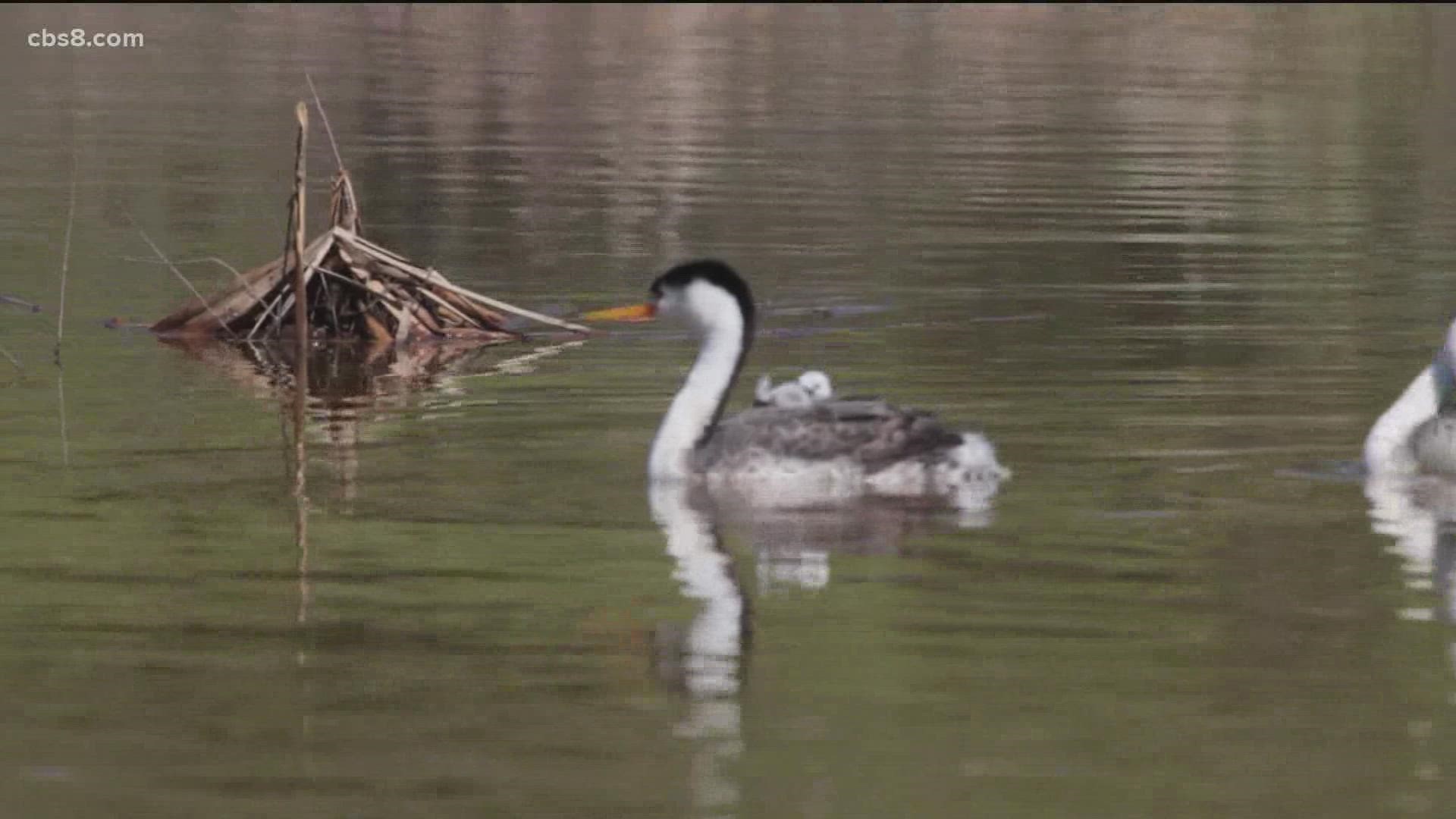SAN DIEGO COUNTY, Calif. — Lake Hodges is an extraordinary place for nesting birds, especially Grebes. But two years ago, lake levels dropped dramatically and within two weeks over 200 nests were lost. But now, Mother Nature has found a way and the Grebes are nesting again, according to Brian Caldwell.
"We had a couple of colonies fail due to water level fluctuations because of the pump station between Olivenhain Reservoir and Lake Hodges," Caldwell said.
Caldwell is on the lake regularly as a photographer and is trying to make sure that doesn't happen again.
"This year has been different because the water was low for a while and a new nesting area has emerged, and even with the water level being brought down to its level 20' below the spillway it's a viable nesting location," he said.
That allowed nesting habitat to grow.
"Well, as soon as the nesting locations became viable both the Clarks and Western Grebes moved in and started building," he said.
That was two weeks ago and since then Caldwell has counted over 100 nests.
"I'm very worried what happened a couple of years ago will happen again. Now with the pump station, water fluctuates much faster -- it's a lot more tricky for them," said Caldwell.
That's because the water is much shallower where the nests are.
"Fifty yards from there you're on dirt, so the water is only 18" deep. So, if they bring the water down that low, they'll be gone," he said.
So, Brian is being proactive and asking others to help.
"I contacted the city biologist; I've also contacted the mayor's office and written letters. I also try to encourage others who have a say in this," he said.
The incubation time for the eggs is 23 days and the next 2-3 weeks are crucial -- then something very special happens.
"Once they've hatch, they end up hopping on the backs of the parents and the parents leave the nest and they just bop around the lake," he said.
Brian is hoping that by making officials aware, and viewers like you, that the Grebes will get through their nesting cycle and have chicks on the water by early September.
WATCH RELATED: Earth 8: Does the drought help reduce ocean pollution across the South Bay? (Aug 10, 2021)

